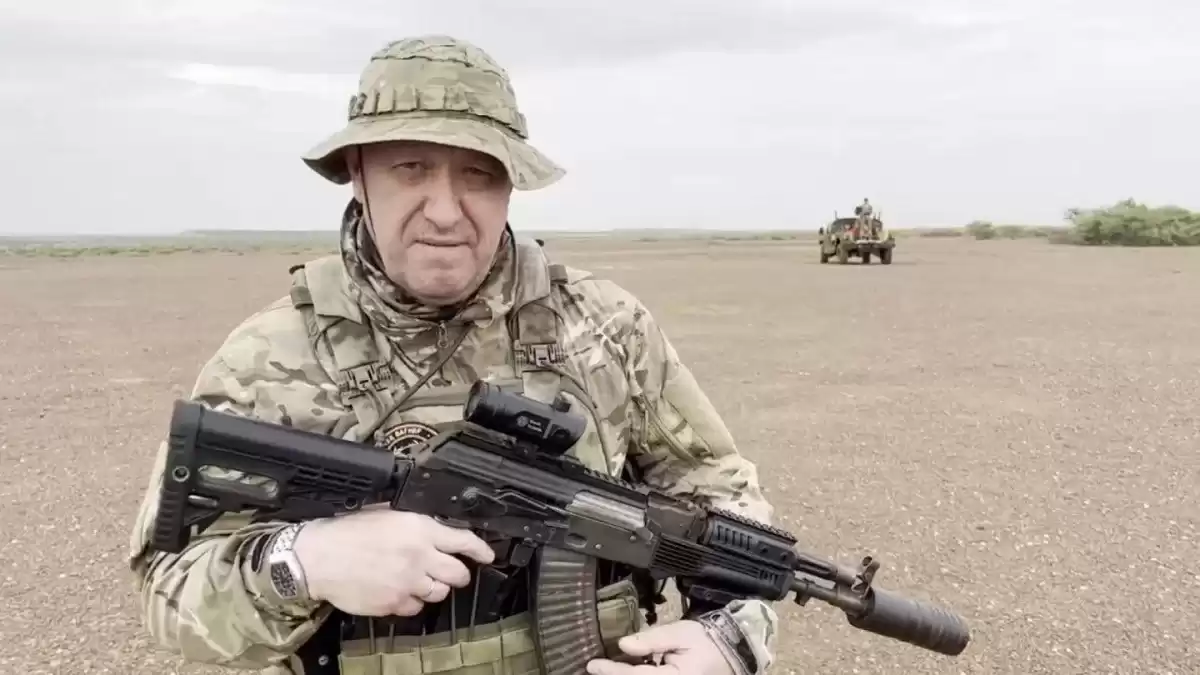Yevgeny Prigozhin: Facts on the Russian Mercenary Boss Challenging Putin
The future of private military contractor, the Wagner Group, is uncertain after an aborted challenge to Russian President Vladimir Putin.
In a shocking turn of events, the future of the Wagner Group, the world's largest private military contractor, hangs in the balance after a failed attempt to challenge Russian President Vladimir Putin. The group's commander, Yevgeny Prigozhin, ordered his troops to stand down after they advanced within 125 miles of Moscow last Friday. This aborted march could spell the end for Wagner, as their troops are expected to be assimilated into the Russian Army.
The series of events began on June 23, when Prigozhin announced that the Russian military had attacked Wagner positions with a missile strike, resulting in casualties among the group's members. Blaming Russia's Defense Minister Sergei Shoigu and Ukraine war commander Gen. Vitaly Gerasimov for the failures in the war, Prigozhin demanded their resignations.
In addition to his demands, Prigozhin sent a column of Wagner troops on a drive into Russia itself, which he referred to as a "march for justice." The march reached the city of Rostov-on-Don, where Wagner troops occupied government buildings and reportedly encircled the Southern Military District headquarters. They also shot down seven Russian military aircraft. However, Prigozhin later clarified that the march was intended as a protest rather than an armed rebellion, denying any intention to overthrow the Russian government.
Wagner was originally founded in 2014 by Dmitry Uktin, a former Russian special operations officer. The group was named after Uktin's call sign, "Vagner," which allegedly reflects his admiration for Nazi Germany. Yevgeny Prigozhin, a former petty thief and ex-convict turned oligarch from St. Petersburg, took over as the leader of Wagner. Prigozhin is currently facing charges in the United States for his company, the Internet Research Agency's involvement in meddling in the 2016 U.S. presidential election.
As a private military company (PMC), Wagner has been operating since at least 2014, when they reportedly assisted the Russian military in the annexation of Crimea. The group has also been active in the Middle East, supporting Russian interests and bolstering Syrian dictator Bashar al-Assad. In 2018, a Wagner-led assault on U.S. troops in Syria resulted in the deaths of hundreds of mercenaries. Wagner has also been involved in operations across Africa, where they are accused of human rights violations and mass murder. The organization is believed to act as a proxy for the Russian government, carrying out tasks that Moscow prefers to keep indirect.
In 2022, as casualties mounted in Ukraine, Wagner and Prigozhin were given permission to recruit Russian citizens and convicts from prisons to fight on the front lines. These convicts, some of whom are HIV positive, joined Wagner in exchange for reduced sentences and access to antiviral drugs when needed. The influx of new recruits and convicts caused Wagner's ranks to swell from 5,000 in 2022 to potentially 50,000 by January 2023. Of these troops, 10,000 are believed to be professional mercenaries, while the remaining 40,000 are recent prison convict recruits. Wagner troops gained notoriety for their human wave-style attacks with poorly trained recruits in the Bakhmut sector, as well as brutal acts such as the sledgehammer killing of an alleged traitor who switched sides and fought for Ukraine.
Wagner's relative success in Ukraine, including the capture of the town of Bakhmut, created tension with the Russian military, which was struggling to make progress in the war. In his "march for justice," Prigozhin blamed Defense Minister Shoigu and Gen. Gerasimov for Russia's lack of progress and high casualties, estimating between 35,500 and 43,000 killed in action and 154,000 to 180,000 wounded.
Prigozhin made it clear that his grievances were with the Russian military and not President Putin, whom he affectionately refers to as "Papa." Putin referred to the attempted mutiny as a "stab in the back," but ultimately agreed to a deal brokered by Belarusian President Alexander Lukashenko. Under the terms of the deal, Prigozhin is allowed to leave for Belarus, while some Wagner fighters will be integrated into the Russian Ground Forces.
These recent events have left the fate of Prigozhin and Wagner uncertain. However, the real surprise in this crisis is Vladimir Putin himself. He allowed one of his own lieutenants to turn against him and challenge his government without facing severe consequences. This unexpected turn of events raises questions about Putin's rule and the ongoing war. Only time will tell how these developments will impact Putin's leadership and the course of the war.











Comments on Yevgeny Prigozhin: Facts on the Russian Mercenary Boss Challenging Putin